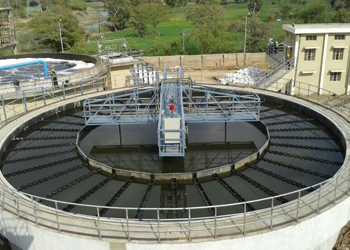Waste Water Treatment Solutions

What is Wastewater Treatment?
Wastewater treatment is a crucial process to remove contaminants such as organic matter, suspended solids, heavy metals, and chemicals from used water. The primary aim is to protect the environment, promote water reuse, and comply with governmental regulations.
Treatment Processes for Wastewater
1. Physical Treatment
This process involves removing solids through sedimentation and filtration, ensuring clean water before further treatment.
2. Chemical Treatment
Chemical treatment neutralizes harmful toxins and promotes particle settling for effective water purification.
3. Biological Treatment
Microbes break down organic waste in this treatment, making water safe for reuse or discharge.
Types of Wastewater
1. Industrial Wastewater
Produced by manufacturing, factories, food processing, and other industrial activities, this wastewater often contains chemicals and heavy metals.
2. Domestic Sewage
Comprising wastewater from households, offices, and public facilities, domestic sewage treatment ensures the safe disposal or reuse of wastewater.
Benefits of Wastewater Treatment
- Reduces environmental pollution by filtering harmful contaminants.
- Facilitates water reuse for non-potable purposes such as irrigation and industrial use.
- Ensures compliance with environmental discharge norms and regulations.
- Conserves valuable freshwater resources through recycling and reuse processes.
Applications of Wastewater Treatment
- Sewage Treatment Plants (STPs) for safe disposal and treatment of household wastewater.
- Effluent Treatment Plants (ETPs) for industrial wastewater purification.
- Zero Liquid Discharge (ZLD) systems for industries that recycle 100% of their wastewater.
- Recycling units in various industries for wastewater reuse in production processes.

